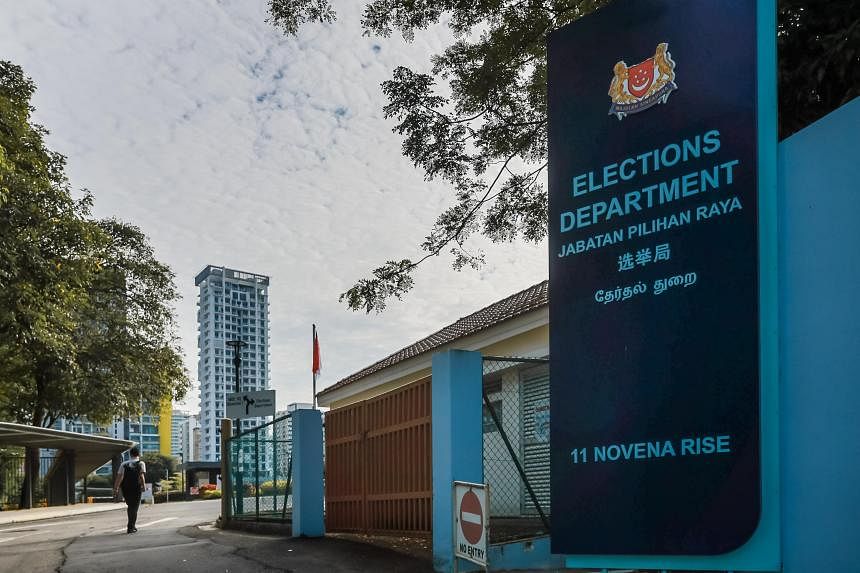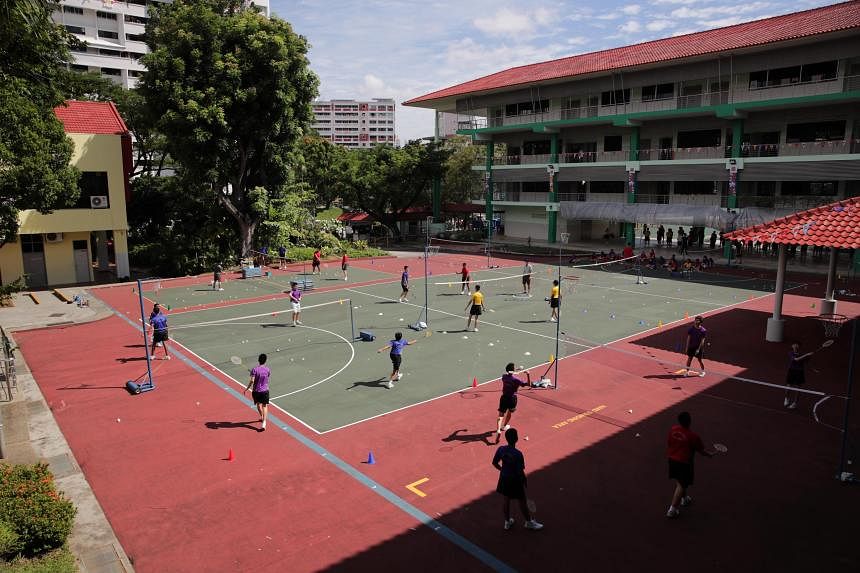from straitstimes.com:
Electoral boundaries drawn to serve interests of S’poreans, not political parties: Chan Chun Sing
SINGAPORE – Electoral boundaries are drawn to serve the interests of the people, not those of political parties, said Education Minister Chan Chun Sing on Aug 7.
The interest of Singaporeans is to have MPs who can take care of and represent them, and for a Parliament that can form a functioning government, added Mr Chan during a motion that called for a review of the process by which electoral boundaries are decided.
While the Government will continually seek to improve Singapore’s electoral system, it opposed the motion as it was based on a fundamentally wrong premise that the process should be in the interest of political parties, and that the current process is not transparent or fair, he added.
Mr Chan, who is also Minister-in-charge of the Public Service, was speaking in Parliament during a motion raised by the Progress Singapore Party’s (PSP) Non-Constituency MPs (NCMPs) that called on the Government to reform how electoral boundaries are drawn, so as to “increase the transparency and fairness of the electoral boundary review process for all political parties”.
The drawing of electoral boundaries is carried out by the Electoral Boundaries Review Committee (EBRC), which taps the specific expertise of its members, who include qualified senior civil servants with domain knowledge in the technical areas required for boundary delineation.
In recent years, the EBRC has consisted of the Cabinet secretary, the chief executives of the Elections Department, the Housing Board, the Singapore Land Authority and the Government’s chief statistician.
These are senior civil servants with no party allegiance, Mr Chan said as he addressed concerns raised by opposition MPs of potential gerrymandering.
The EBRC’s composition and process have allowed the committee to do its work independently and objectively, said Mr Chan. For instance, it does not have access to voting information and hence does not make its recommendations based on voting patterns.
Kicking off the debate, NCMP Hazel Poa laid out several proposals by the PSP to reform the boundaries drawing process.
These included requiring the EBRC to publicly and sufficiently explain all changes made so as to dispel suspicions of gerrymandering.
Mr Chan replied that while “all of us also want more explanation from the EBRC”, a practical balance has to be struck so that public officers are given the space to do their work independently and objectively, without fear that every change will be politicised if viewed unfavourably by certain political parties.
Ms Poa, who is secretary-general of the PSP, also proposed that the range of number of voters per MP be narrowed, saying the current range of 20,000 to 38,000 voters per MP is too wide.
This would result in a fairer distribution of duties among MPs and be fairer to voters in the weighting of their votes, she said.
Mr Chan noted that in putting forth this proposal, Ms Poa had cited the United Kingdom and Australia as examples.
But the number of electors per MP in those countries is two to three times that of Singapore, and applying the same parameters here will lead to more frequent and drastic changes to boundaries due to the high rate of movement within a small city state, he said.
He noted that some 200,000 electors here change their residential address annually.
On vote weighting, Mr Chan said the Government had studied other countries very carefully, and no electoral system could definitively claim that every vote is exactly the same or near equal.
The PSP also advanced the idea of minor and major boundaries, which it said would reduce the potential for gerrymandering.
Such a system would have major boundaries – corresponding closely to local ties and geographical considerations – that remain unchanged for many elections, while minor boundaries within that delineate different constituencies could be changed by the EBRC, said Ms Poa.
Mr Chan disagreed with the proposal, noting that it had also been studied before.
“There would be the question of who and how should we delineate what constitutes major and minor boundaries, and we are back to square one,” he said.
Ms Poa also called for the EBRC to be chaired by a High Court judge, instead of reporting to the prime minister. Leader of the Opposition Pritam Singh made a similar call later in the debate.
Mr Chan said the Government had thought about this carefully and looked at the experience of other countries, but did not think it would resolve concerns about political interference.
“Other jurisdictions that have done so continue to face allegations and doubts concerning the independence of their electoral boundary delineation process,” he said.
“Their debate instead sinks into questions on who appoints the judge, and whether the judge has any political leaning or bias. The judiciary ends up getting drawn into the political debate, and the judiciary is politicised.”
He added that the EBRC’s work also does not consist of legal issues that require a judicial official to weigh in.
“What is required is political neutrality, integrity and objectivity, which I trust all my public service officers have whether they are in the EBRC or not,” he said.
Both the PSP and the Workers’ Party (WP) also proposed that political parties have some say in the changes made to electoral boundaries.
But Mr Chan said the EBRC has been able to do its work independently and objectively due to its composition, and also that its processes are insulated from party politics.
“Hence, we do not have the horse trading and gerrymandering that have taken place in other countries,” he said. “If we get all political parties involved, present or future, it will politicise the whole process and not bring us forward, but bring us backwards.”
During the debate, opposition MPs raised examples of previous boundary changes to constituencies with close vote margins as instances of gerrymandering.
Mr Singh cited how Braddell Heights SMC was incorporated into Marine Parade GRC in 1997, Joo Chiat SMC was merged into Marine Parade GRC in 2015, and three single seats “where the PAP had their smallest percentage of wins” in the 2015 General Election – Fengshan, Sengkang West and Punggol East – became part of group representation constituencies in 2020.
Mr Chan stressed that the EBRC does not take political interests into account. Rather, it looks holistically at both population shifts and the need for continuity in community formation, and with the objective that an MP can serve the constituency effectively, he said.
Noting that Mr Leong had called for constituencies to be more compact, Mr Chan said this suggested that the prime minister give the EBRC more specific instructions, rather than to let the EBRC do its work objectively with some basic instructions.
“Sometimes the more we interfere, the more we fall into this trap to make it a politically motivated process,” he said.
The motion was not carried at the end of the two-hour debate: 76 MPs voted against it, while the opposition MPs – eight from WP and two from PSP – voted in its favour.





































